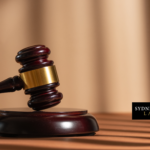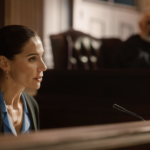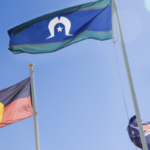Wrongly Accused – What are Your Rights?

We recently published a Facebook post regarding the child sex claims against singer Cliff Richard, who has denied the allegations and has not been arrested or charged.
The post reached 1.5 million people, whose views on the matter are heavily polarised.
On one hand, many assume he is guilty, saying nasty things such as he certainly ‘seemed’ like a paedophile and that it was ‘about time’ for an arrest.
On the other hand, many cannot believe that their beloved idol could ever commit such a heinous act, saying that he is a talented and kind person, evidently caught up in a ‘witch hunt’.
And in the middle are those saying that he should be assumed innocent until proven guilty. Indeed! The spread of opinions is certainly vast.
As the rumours swirl around Sir Cliff in the UK, it brings up important questions about the nature and timing of accusations made in public – whether these turn out to be right or wrong.
It’s a crazy-paced world, with investigators, media and the public knowing about an imminent arrest or investigation almost before the accused does!
In this post, we’ll be looking at wrongful accusations, plus how to protect your rights should these unfortunate circumstances arise.
The damage of prejudice
We all like to think that we’re fair when it comes to passing judgment on others.
And we certainly hope that if we are ever wrongly accused ourselves our story will be heard, and the truth will prevail.
Yet unfortunately, it seems that people continue to be just as likely to make hasty decisions, using partial and even downright wrong information.
When it comes to the application and enforcement of law, we continue to see wrongful accusations of guilt – with some fairly ugly consequences for those innocently caught up in a web of misinformation.
And we’ve certainly seen the consequences that the rumour mill can have on the administration of justice.
Take the Lindy Chamberlain case, which saw an innocent mother dragged through the justice system and imprisoned on the basis of a false accusation of murder – before the truth finally held sway many years later.
Or the consequences of the 2012 Corryn Rayney murder case in WA, where the senior investigative sergeant named a suspect before any arrest – and continued to refer to the accused as ‘our one and only suspect.’
Justice Martin was scathing in his remarks concerning the behaviour of the prosecution in this case, concluding that there was ‘no evidence’, largely caused by a failure of the police to adequately investigate any other leads.
Confirming truth or lies?
What causes these miscalculations of fact, which continue to arise across both the media and the justice system?
Psychologists use the term ‘confirmation bias’ to describe the kinds of faulty thinking that can lead people to make a false accusation.
This basically means that we all hold certain beliefs and biases, and tend to straightaway go looking for information that matches up with those beliefs.
And sometimes that means seeing the situation totally wrong.
Take the Chamberlain matter.
False rumours or beliefs abounded, based on Lindy’s perceived ‘abnormal’ maternal responses to grief.
Plus, her religion was falsely aligned with all sorts of ludicrous rituals.
Investigators – not to mention large chunks of the Australian public and media – then made huge leaps towards guilt, missing vital evidence along the way.
The notorious mix-up of alleged blood in the car with a soundproofing liquid is just one example of the type of dangerous blindness that can come with confirmation bias.
You can see how innocent facts, misconstrued through unconscious bias can easily lead to a wrongful accusation.
The wearing of similar clothes to those of the actual perpetrator, or simply being assumed by investigators to be part of certain group, such as a ‘bikie’, ‘skinhead’, ‘middle eastern gang’ or ‘hippy’, can lead to such wrong and unjust accusations.
Former brushes with the law, misunderstandings, and even revenge by complainants can also give rise to situations where bias arises and assumptions are wrongly made.
So what should be done?
There are many questions to consider when trying to prevent or remedy false accusations.
For example – should there be a law against police leaking information to the media based upon mere accusations, if the person has not even been arrested, let alone charged or convicted?
Well, yes – we think that in the majority of cases, there is no sufficient reason for police to leak identifying information to the media prior to arrest.
In very confined circumstances involving danger to an individual such as a child, or where specific information is required regarding an incident, a broadcast for public assistance using only enough information as required to obtain the information sought might provide a narrow exception for media usage.
Complaint and compensation avenues
But can a leak or publication be stopped?
Or can I get compensation for a false accusation?
Or can I get a complainant prosecuted for false complaint?
Unfortunately, there is no specific piece of legislation that police or media outlets need to comply with before leaking or publishing names of suspected persons.
And it may be difficult to get an injunction to stop the information from being published because police and media may have ‘let the cat out of the bag’ even before you knew you were a suspect!
Rather, those whose names are irresponsibly leaked and published may, once vindicated, have to pursue expensive civil remedies such as ‘defamation’ whereby they will need to demonstrate that the publication was untrue, that it caused damaged, and to quantify the actual damage caused.
Other viable options include seeking legal costs at the end of proceedings or asking for a false complainant to be criminally prosecuted.
Legal costs
Section 213 of the Criminal Procedure Act 1986 (NSW) allows a person to make an application for legal costs against the prosecution once a case is finalised if certain circumstances exist.
Those circumstances are outlined in section 214 and include:
- where proceedings were commenced without reasonable cause or in bad faith, or
- where police failed to investigate something that may have suggested your innocence, or
- where police acted improperly or unreasonably, or
- where other exceptional circumstances exist relating to the conduct of police.
If your case is dropped or thrown out of court, and you demonstrate one or more of the above matters, the magistrate can order t prosecution to pay some or all of your legal costs.
A good lawyer will often send a letter to police early in the case asking for your charges to be dropped and foreshadowing a cost application if the case nevertheless goes ahead.
That letter is called ‘representations’.
The letter will often say that the police case is not strong enough to succeed.
It may also ask police to investigate something that would suggest that the complainant is lying eg to get a statement from a particular witness, or to get phone records, or to secure a particular piece of CCTV footage.
A copy of the ‘representations’ will often strengthen a cost application and should be handed up to the magistrate once the case against you is dismissed.
If your case is heading towards a defended hearing, it’s also a good idea to prepare a ‘schedule of costs’ which is basically a list of the legal costs you have paid or are liable to pay.
This should be handed-up to the court once costs are approved to assist in the quantification of costs.
Prosecuting false complainants
The law imposes harsh penalties upon those who mislead authorities or lie in court.
Section 314 of the Criminal Code Act 1995 (Cth) makes it an offence to falsely accuse a person with intent to make that person the subject of an investigation. The maximum penalty is 7 years imprisonment.
Alternatively, section 547B of the Crimes Act 1900 (NSW) makes it an offence for any person to knowingly make a false complaint to a police officer. The offence is called ‘public mischief’ and carries a maximum penalty of 12 months imprisonment and fine of up to $5,500.
Lying on the witness stand is called ‘perjury’ and is an offence under section 327 of the Crimes Act 1900 (NSW). The maximum penalty for that offence is 10 years imprisonment.
The difficulty for falsely accused persons is that police and the DPP may be very reluctant to prosecute a false complainant, and it may take a lot of effort to have any chance of getting that done.
If your case went to a defended hearing and you won, your best bet may be to obtain the court transcript and to provide it to the prosecuting body (eg DPP or police) together with any inconsistent materials eg the complainant’s statement to police and/or CCTV footage etc.
It is a good idea to also prepare an outline of the case highlighting the fact that the complaint has been proved false, and describing the affect of the prosecution and any loss you suffered.
Somewhat ironically, a good criminal defence lawyer may be able to assist in obtaining and preparing the required materials, and pushing for the false complainant to be prosecuted.
Civil proceedings including defamation
As touched upon earlier, you may also be able to commence civil proceedings against the complainant, against media organisations or, if the actions of police or prosecutors contributed to the loss, against the government for defamation of character or negligence.
However, it is important to bear in mind that civil proceedings can be protracted and costly.
Having said that, engaging a civil lawyer to look into the possibility of defamation and getting them to try to settle the case without commencing formal legal proceedings may be your best bet in certain situations.
What about if you have served a lengthy prison term and then released because you are innocent?
Sadly, such cases have been known to occur in Australia as well as abroad.
The government responsible for both prosecutors and police can certainly be found liable for compensation where a lengthy prison term flows from some serious misconduct on the part of law enforcement agencies.
This avenue will need to be pursued through civil proceedings which, again, can take long time and be very expensive.
Unfortunately, there is no specific scheme to compensate innocent people in NSW.
This is different to most states of the USA which have specific schemes to compensate those who have served lengthy prison sentences and later found to be innocent.
Seeking fairness and justice
We all have unconscious biases and it can be hard for us to remain impartial and to ‘hold fire’ when we hear about a criminal complaint, especially complaints of child sexual assault or ‘rape’ which are particularly emotive.
However, the presumption of innocence is an important cornerstone of our criminal justice system and we should give all people a ‘fair go’ rather than assuming that they are guilty just because police or the media ‘say so’.
If you become the subject of a false accusation, be sure to seek legal advice at the earliest opportunity.
A good criminal lawyer will be able to take away much of your burden by explaining your options, the best way forward and the likely outcome, and by working hard to ensure that your liberty and reputation are protected.






